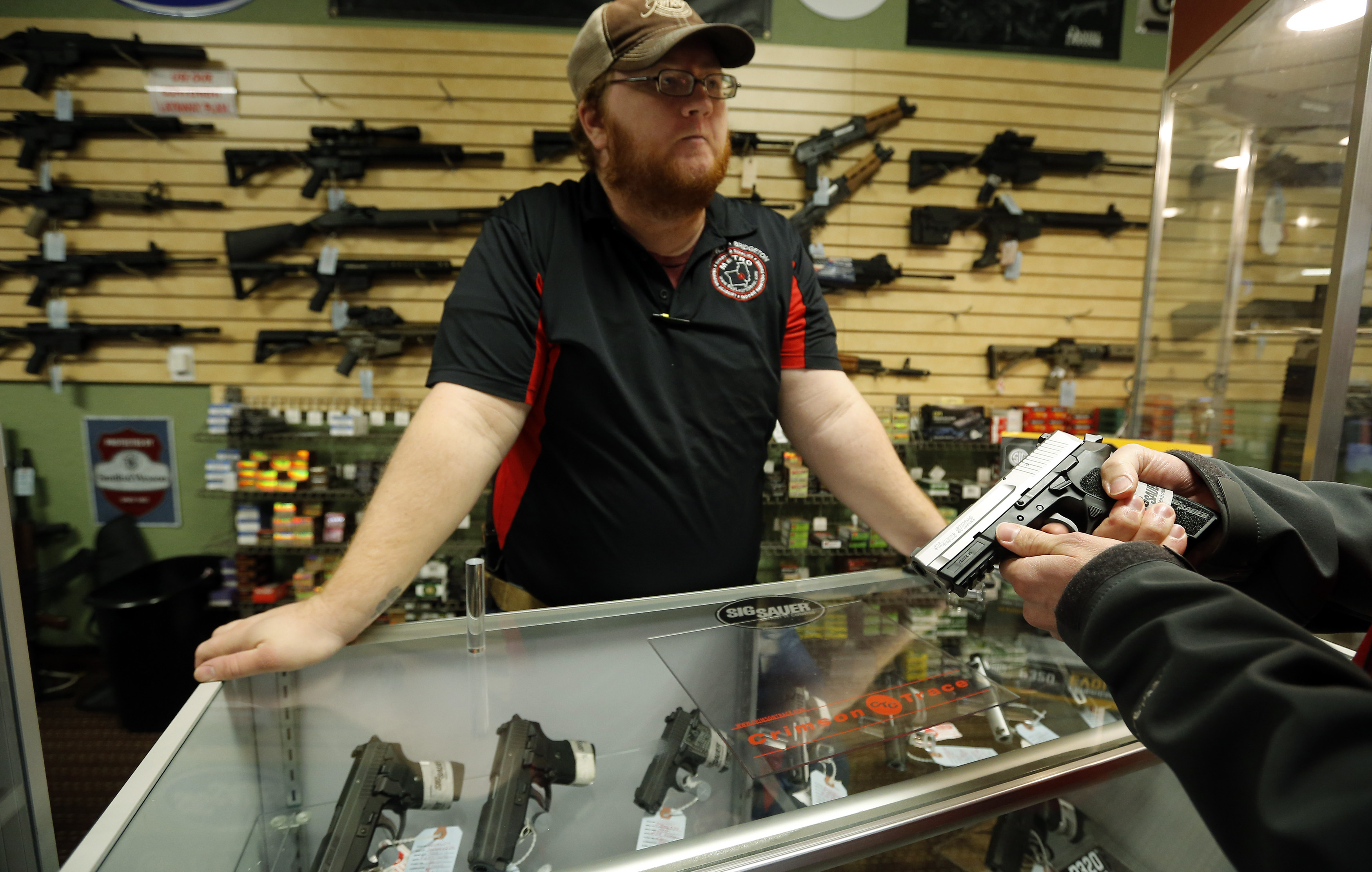Nearly a week after shooter Stephen Paddock killed at least 59 people and injured 489 others on the Las Vegas Strip, details have emerged about his gun-buying history. In the past year, Paddock purchased 33 guns, most of them rifles. He owned more than 40 firearms.
It’s legal to own that many guns in Nevada, which has resisted efforts to tighten firearm laws in recent years. It’s not only relatively easy to get a gun in Nevada, it’s also easy to find a firearm dealer. Statewide, there are approximately 505 federally licensed gun dealers as of September 2017.
That number may sound high, but gun stores permeate every US state. They are integrated into suburbs, towns, and cities across the United States – even moreso than McDonald’s, coffee shops, grocery stores, 7-11s, and pharmacies.
To put things in perspective:
- In the US, there are approximately 50,271 more gun stores than McDonald’s. Specifically, there are 14,146 McDonald’s (as of December 2016) and 64,417 firearm dealers nationwide (as of September 2017). There are approximately 32,927 more gun stores than coffee shops (31,490 as of December 2015). There are approximately 39,017 more gun stores than grocery stores (25,400 as of December 2016). There are approximately 54,017 more gun stores than 7-11s (10,400 as of 2017). There are approximately 3,578 more gun stores than pharmacies (60,839 as of 2014).
We define gun dealers according to two ATF classifications: “Dealer in firearms other than destructive devices (including gunsmiths)” and “pawnbroker in firearms other than destructive devices.” If we were to include gun manufacturers, collectors, and importers, the national figure would be higher (132,799). Gun dealers would outnumber public schools (98,000 as of 2014).
There are a few caveats to this analysis. The data for gun stores is more recent than the data for other retailers. Also, not everyone with a license to sell guns actively sells them.
At the same time, these stats illuminate the size of the gun industry in the US, which is expected to gain $13 billion in sales this year, according to analysts at IBIS World.
The gun industry is thriving in the US, and firearm sales tend to spike after mass shootings. Many gun-store owners attribute the increases to worries about new gun regulations.
"Normally what happens - and I've been doing this for 30 years - is whenever they start talking about gun control on the news and they start pushing that, people have a tendency to think they're going to take away their right to buy the gun, and that usually spurs sales," Paul Decker, owner of Hunters Heaven in Virginia, told the Christian Science Monitor.
The opposite of a gun crackdown often happens, according to a 2016 research paper from Harvard's Michael Luca, Deepak Malhotra, and Christopher Poliquin. They found that, between 1989 and 2014, the most probable policy response in states with Republican-controlled legislatures to a mass shooting was a looseningof gun laws by 75%. The researchers found no significant effect of mass shootings on state gun legislation in Democrat-controlled legislatures.
This helps explain why gun stores are so common in the US. When gun regulation is less strict, it creates opportunity for firearm sellers to launch more retailers.

